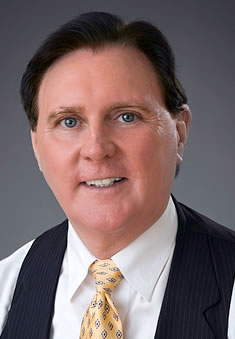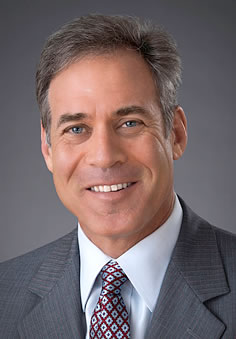Clean Air Act and VW
The Clean Air Act was passed in 1970, but 45 years later, it may be giving car companies a way to ditch improving their car emissions and keep going with carbon emissions at an alarming rate. There is a loop-hole in the law that keeps the car companies from having penalties if they have issues.
The loophole in the Clean Air Act does not give any particular punishment for automakers. While many other kinds of companies are legally liable under the Clean Air Act, car makers won the ability to skirt around the legal limits of emissions thanks to lawmakers who were sympathetic to the automakers. The automakers instead face civil penalties when charges are pressed - which, Wall Street Report states, are easier to implement against the automakers because of the loophole.
The entire case started when the Environmental Protection Agency (EPA) started to investigate Volkswagen after devices were found that skirts the legal emissions limit. These devices are called defeat devices, and are used to keep the emissions detectors from noticing how much was being emitted. The government and the state of California were feeling lied to - as were many consumers - about what was... read article

Bernard Walsh
Unable to Fix Emissions Issues
In the midst of the Volkswagen suit, fixes for the issue have emerged. However, the fixes will not make owners of any of the VW cars affected by the recall happy.
The cars sold in Europe will be having software and hardware update. In the United States, however, these fixes will not be enough to deactivate the defeat device and still have the cars operate within the legal emissions limit. When the device is not active - or when it is taken out of the equation altogether - VW cars emit up to 40 times more emissions than what the legal limit in the United States allows.
There are two fixes for the United States cars, but neither will make owners particularly happy.
The first of the two fixes is to run the cars in test mode the entire time. However, when they run in this mode for a long, sustained period of time, the cars lose some fuel economy. Drivers won't be happy with this since VW has advertised that the cars have great fuel economy, and therefore would have to spend more on fuel than they want to.
If this is the case for the fixes, then the... read article

David Goldman
The charges brought against Volkswagen for evading federal emissions regulations have now gotten bigger. On September 18, 2015, the U.S. Environmental Agency (EPA) charged the German car manufacturer with exposing the public to harmful pollutants by installing software in diesel cars in the United States and Europe. The number of such involved vehicles was cited as 482,000, although that figure was later substantially increased to 11 million. VW has now admitted that more than one million of its commercial vehicles, which are vans and pickups, are also involved. It is estimated that the company will have to spend about 7 billion to fix the problems, causing experts to question whether VW can hold on to its position as the world's largest automaker. During the first six months of 2015, Volkswagen passed Toyota as the world leader in terms of car sales.
In the original charges against the auto company, cars of various prices were equipped with what was called a "Clean Diesel" model that saved fuel and simply ran more efficiently. The EPA called it false advertising. Expecting to save substantial fuel costs, consumers bought these models for premium prices. In addition to the American models, millions of the car sold... read article
According to U.S. regulators and automotive experts, about 11 million diesel-powered cars built by Volkswagen may need software modifications to bring them into compliance with emissions regulations, and some of those might also need hardware changes.
The German auto maker has admitted to developing and installing emissions control systems that were programmed to reduce emissions only while the vehicles were being tested, in order to circumvent restrictive U.S environmental regulations. The faulty systems were used on vehicles manufactured from 2009-2015, and some experts have estimated that the cost of repairing all of the defective vehicles could exceed 6 billion dollars. Volkswagen has reportedly set aside $7 billion—about $660 per car—in order to pay for the expected repairs.
Mathias Mueller, CEO for the Volkswagen Group, said late last month that the cars would likely need to be "refitted," but stopped short of describing what that might involve. Mueller is new to the position of CEO, having replaced former chief executive Martin Winterkorn, who resigned in the wake of the emissions cheating controversy.
Marc Trahan, a former Volkswagen executive involved in U.S. operations, speculated that software changes alone could solve the problem, but some experts disagree.
There were 2 types of emissions systems installed on cars... read article

David Shapiro
In September of 2015, Volkswagen, the acclaimed automobile manufacturer, was accused of implementing software in their vehicles that turned emission controls on and off to deceive testing agencies. The deception has turned the automotive industry on its head, as the investigation tries to determine who approved the decision and how far the impact will go on the safety and credibility of this once-great name in the industry.
How Volkswagen Got Caught
The events that lead up to the discovery of the software deception were something of a fluke. A small group of scientists at the University of West Virginia, whose focus was on emissions testing won a grant in 2012 to test some diesel vehicles. The International Council on Clean Transportation was seeking independent testing on Volkwagen diesel that had been touted as the most efficient vehicles on the road. Two vehicles, in particular, appeared to have problems with accurate emissions readings, the 2012 VW Jetta and the 2013 VW Passat. Arvind Thiruvengadam, a research assistant professor at WVU, noticed that the Volkswagen vehicles were not getting the low emissions that were expected during highway driving. Although the research team kept double-checking their data, the emissions numbers never added up. They reported... read article